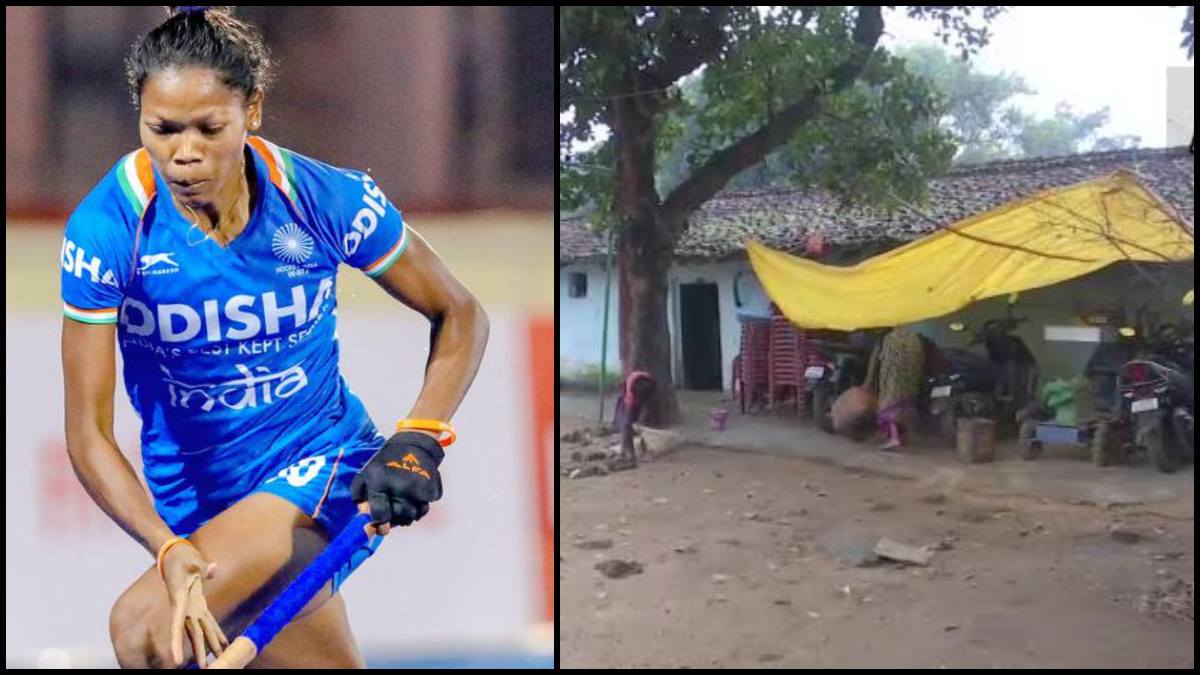Before this year’s Paris Olympics, the Indian women’s hockey team garnered considerable attention. Initially, the team made headlines in January when they failed to qualify in the qualifying rounds. This means the Indian women’s hockey team will not feature in the Paris Olympics because they did not manage to qualify.
Now, captain Salima Tete has been in the spotlight. She has been making headlines not just for her game but also for her domestic struggles. Salima was appointed captain on May 2nd this year, replacing Savita Punia. She resides approximately 165 kilometers away from Ranchi, the capital of Jharkhand, in the small village of Badki Chhpar in Simdega district.
Water Struggle And Resilience
According to India Today magazine, citing Salima Tete’s father Sulakshn, the government tank in their village provides water that is unfit for drinking. This water is so impure that even lentils cannot be cooked with it. Consequently, Salima Tete’s entire family walks three kilometers daily to fetch drinking water. All members of the family participate in fetching water, enabling them to manage their daily chores.
Furthermore, the government has yet to fulfill its promise of providing them a house. Salima’s mother has worked as a cook, and her elder sister has washed dishes in others’ homes to support Salima’s journey to the national level.
Also Read: Sunil Gavaskar Comments On Rohit Sharma’s ‘Complete Disregard For Personal Milestones’
Salima’s mother, Subani Tete, works as a cook at the same government school in their village. She goes first thing in the morning to fetch water and also has to fetch water in the afternoon and evening. If guests arrive, they have to put in extra effort. The situation is such that their family has to travel several kilometers multiple times a day to fetch water.
Communication And Power Challenges
Not only is there no water, but also no mobile network in Salima’s village. This is why when Salima goes back home, she feels completely cut off from the rest of the world. It becomes very difficult to contact her through phone, email, or any other means. Even when Salima wins important matches, she cannot communicate with her family. Electricity is also a major issue in Salima’s village. Once a transformer breaks down, electricity disappears for a week.
Rural Hardships And Sports
This is also the story of Ropani Kumari, who plays as a defender in the senior team. Her family lives in a two-room house in Khaprail. Ropani’s father is absent, and her brother works in Visakhapatnam. Her mother and sister-in-law reside in the village and work as laborers to sustain the household. Meanwhile, Beauty Kumari, a forward player in the team, states that in her village, there is neither water nor a paved road for fetching water. During rainfall, it becomes extremely challenging for them to fetch drinking water.
Also Read: Jasprit Bumrah Posts Emotional T20 World Cup Video Featuring Virat Kohli













